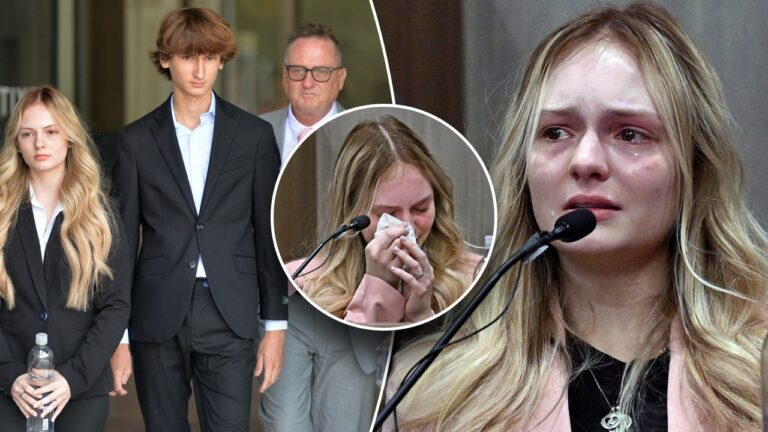Child Medical Abuse Case Witness Testifies in Court
Maya Kowalski, a key figure in a child medical abuse case in Florida, took the stand on Monday to share her experience. This case eventually led to her mother’s tragic suicide and inspired the Netflix documentary “Take Care of Maya.”
When Maya was just 10 years old in 2016, she was admitted to Johns Hopkins All Children’s Hospital (JHAC) in St. Petersburg due to severe pain caused by a rare medical condition known as complex regional pain syndrome (CRPS). Hospital staff became suspicious of her parents, thinking they were engaged in “medical abuse.” As a result, the Florida Department of Children and Families (DCF) intervened, separating Maya from her parents while she received medical care.
Maya expressed her deep disappointment with the limited time she was allowed to spend with her family after hearing such distressing news. She testified in a Sarasota County courtroom, saying, “It was actually so unbelievably cruel, the amount of time they allocated for me to spend with my family after hearing such awful news.”
Tragedy Strikes
Maya’s mother, Beata Kowalski, faced immense anguish due to the allegations of medical abuse and her separation from her daughter. This anguish ultimately led her to take her own life in January 2016.
Maya recalled the last words her mother said to her the day before her death, “I love you, and I’ll see you tomorrow.” Regrettably, Maya never saw her mother again.
Maya also described her younger brother’s struggles as they both dealt with her illness, which was deeply emotional for her.
“Take Care of Maya” Documentary
The Netflix documentary “Take Care of Maya” chronicles the Kowalski family’s ordeal, delving into the challenges Maya and her mother, Beata, faced while dealing with CRPS. This rare and poorly understood condition causes severe pain throughout the body due to nervous system dysfunction.
Maya experienced painful episodes in her limbs and skin lesions during her illness. Additionally, her feet would turn inward during CRPS episodes, a common reflex for patients with this condition.
Legal Battle
Maya’s father took legal action against JHAC and the medical staff involved in his daughter’s treatment in 2018. He alleged that the hospital wrongly accused Beata of medical abuse and failed to provide appropriate care for his daughter, causing his family significant emotional distress.
Despite Beata’s efforts to advocate for Maya’s diagnosis and treatment, hospital staff suspected her of medical abuse when she insisted on ketamine to alleviate her daughter’s pain. The hospital’s stance on this matter remains unchanged, as a Sarasota County court concluded that the staff had reasonable cause to suspect abuse.
Hospital’s Response
Johns Hopkins All Children’s Hospital has emphasized its commitment to patient safety and privacy. It follows federal privacy laws that limit information disclosure concerning specific cases. The hospital’s primary responsibility is the well-being of the children in its care, and it is legally obligated to report any signs of possible abuse or neglect to the Florida Department of Children and Families.
Maya’s Ordeal
Maya alleged that during her time in the custody of child protective services, she was placed in an isolated room for 48 hours. In this room, she was left unattended with a commode that was positioned too far from the bed, making it difficult for her to use the bathroom without assistance.
Nearly five years after the Kowalski family’s lawsuit was filed, and seven years since Maya’s initial admission to JHAC, both sides are now presenting their cases in court.

